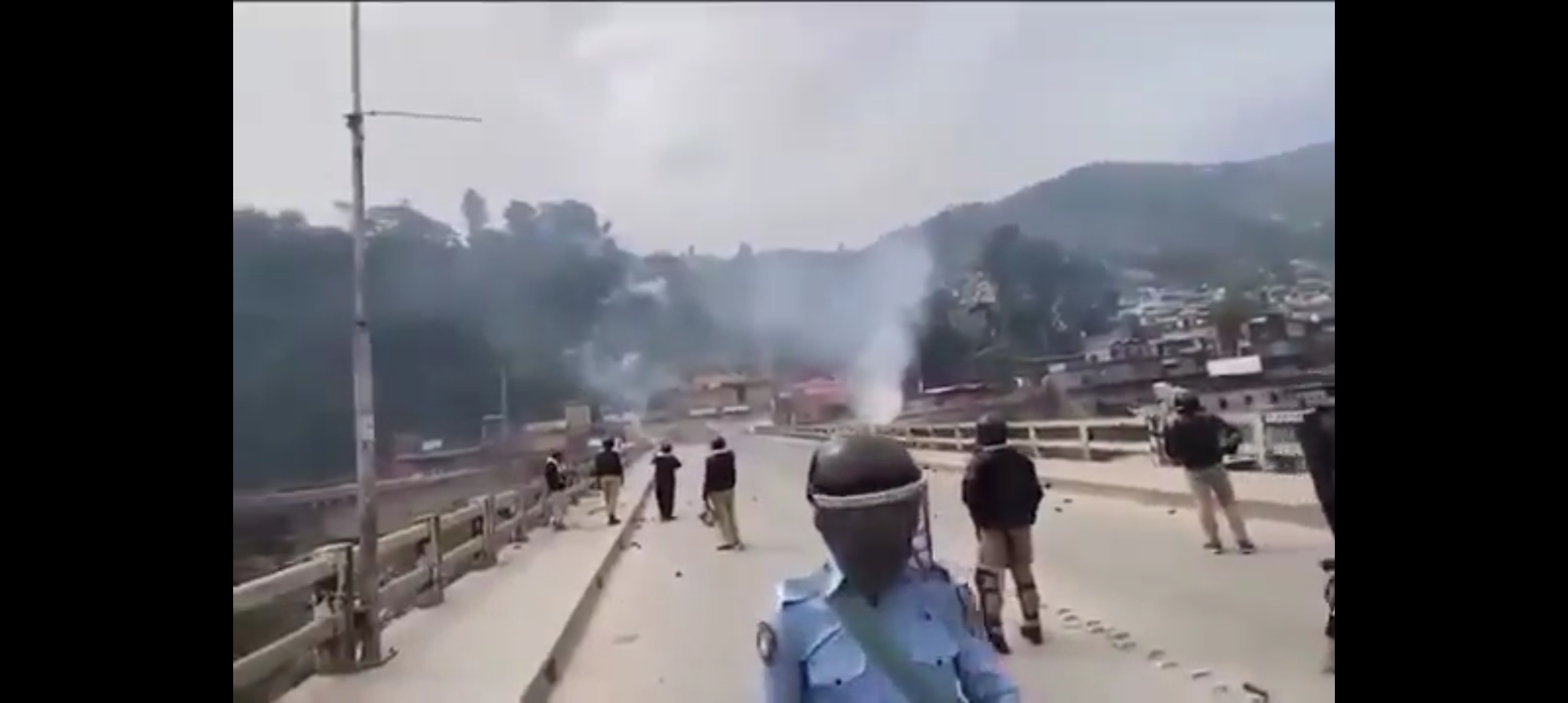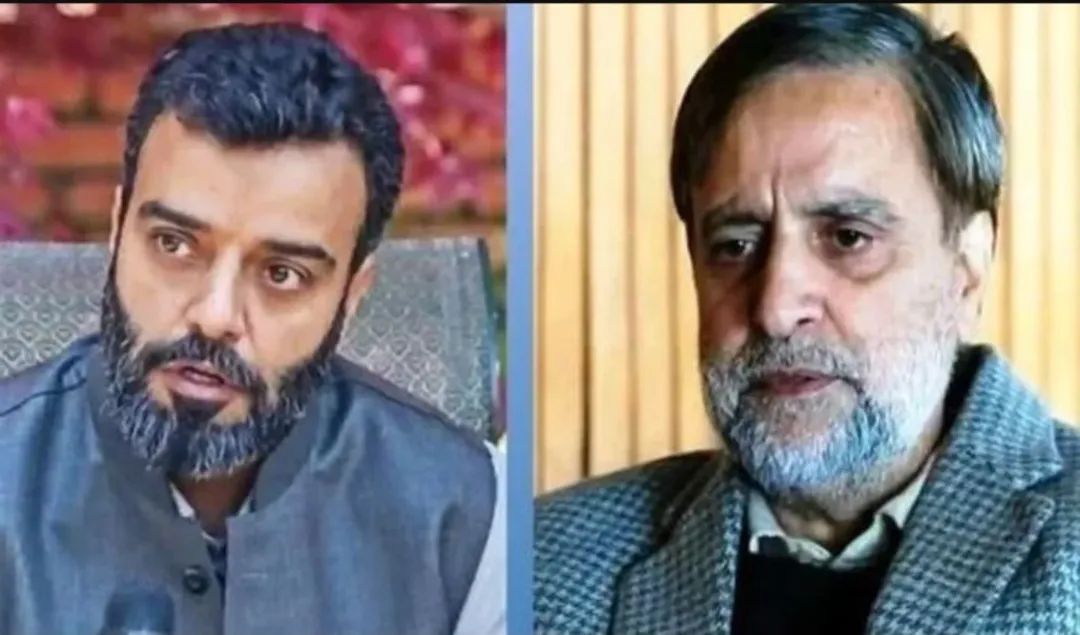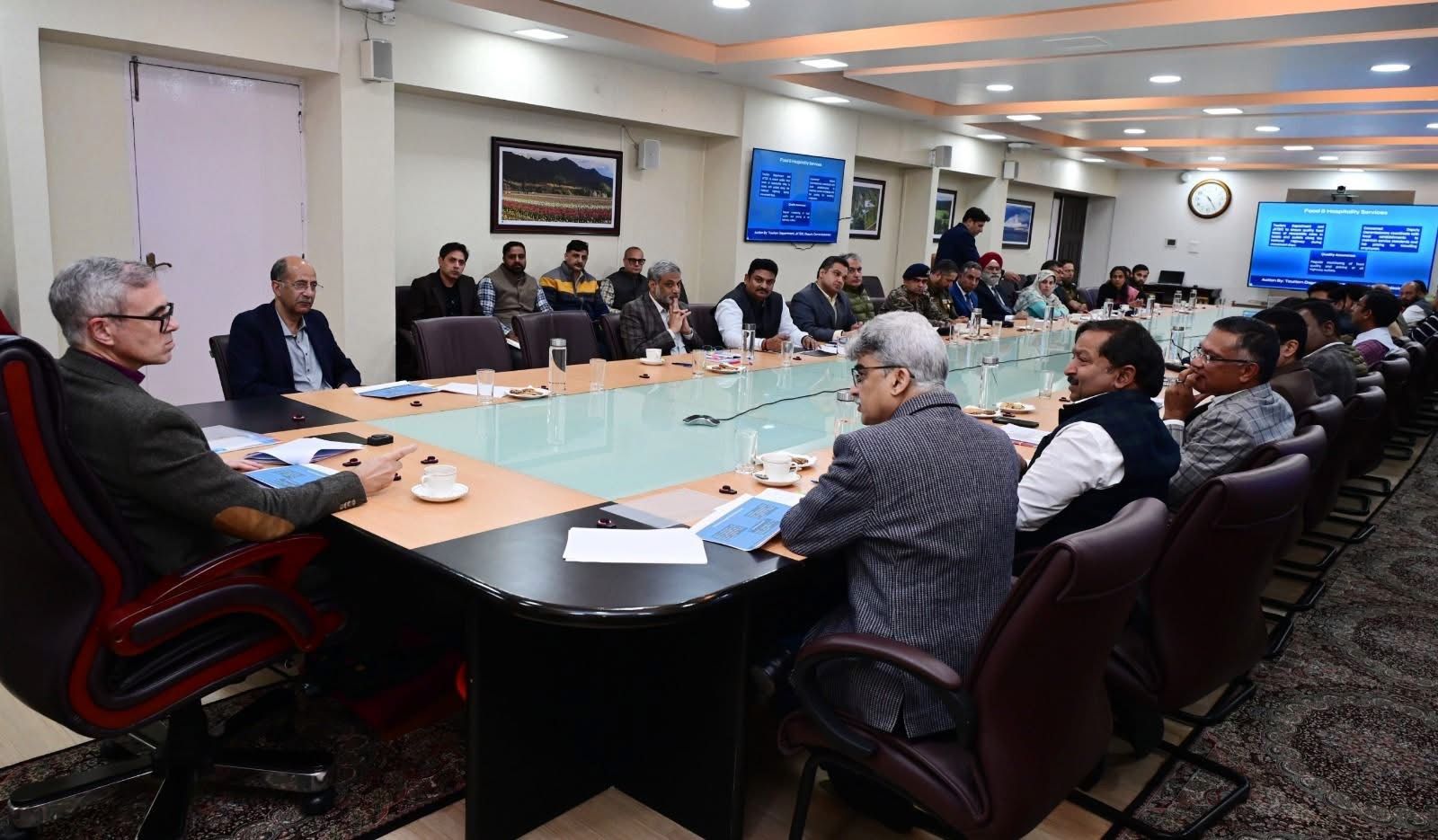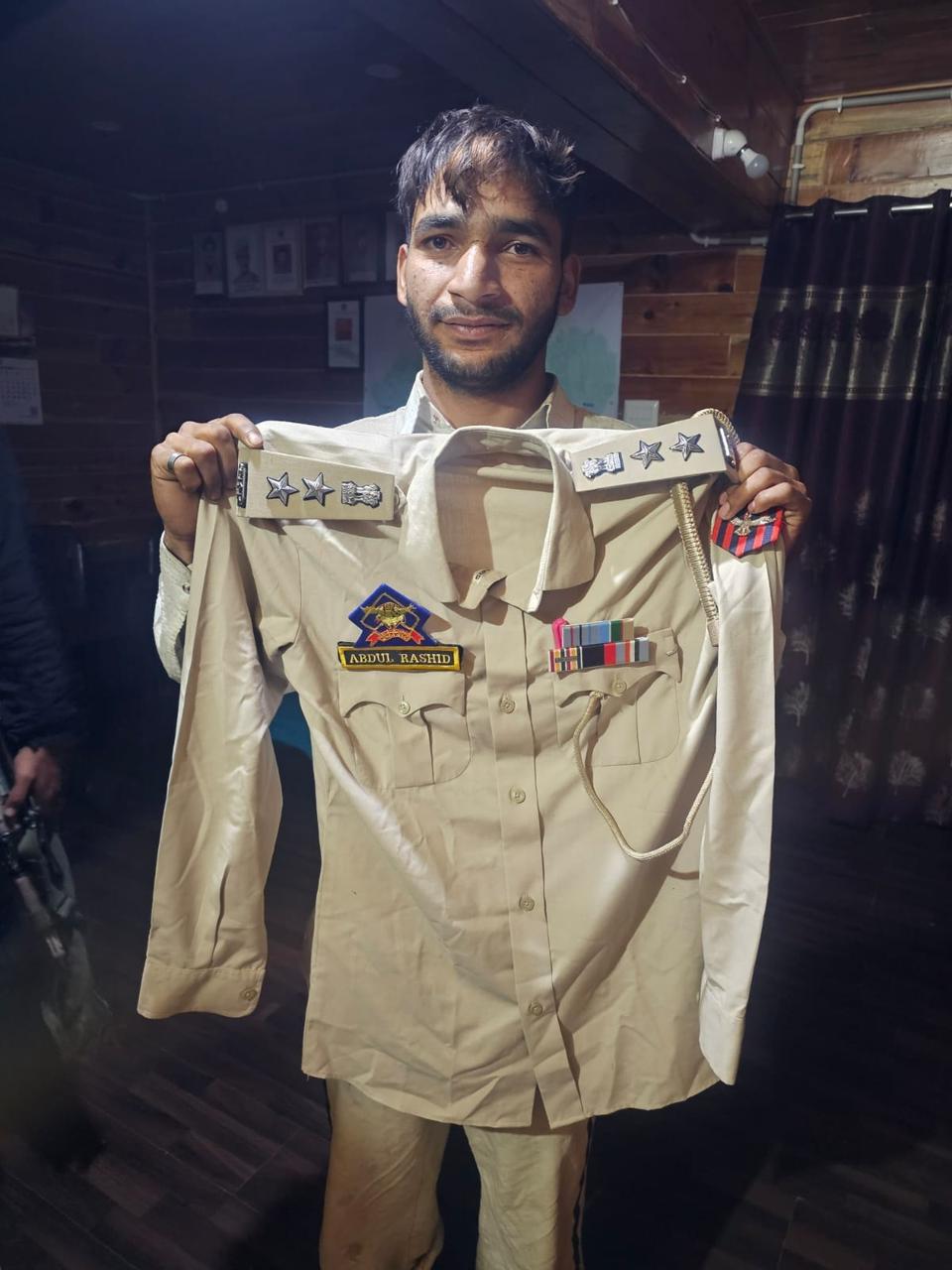
By M S Nazki
Winning doesn’t necessarily mean you’ll walk away with a trophy. Sometimes winning means you dared to show up at all to see the shocked look of your rivals………..We could see Pak Generals……..The brooding faces told the story in a fair way!………The people of District Poonch!
Out of suffering have emerged the strongest souls; the most massive characters are seared with scars! ………….93 Infantry Brigade Poonch knows that as they hold the locals of Poonch in highest regards!
-We think scars are like battle wounds – beautiful, in a way. They show what you’ve been through and how strong you are for coming out of it………..All ranks and officers of 93 Infantry Brigade Poonch!
-I will quote three people all great in their own respect! By the way I read the same in books prescribed essentially by my Dad! I had to build upon the same………MD!
- We are like seeds and the people are like the soil. Wherever we go, we must unite with the people, take root and blossom among them. This organic metaphor emphasizes the need for an army to be deeply integrated and sustained by the local population to thrive and succeed………. Mao Zedong!
-Do not try to do too much with your own hands. Better the they do it tolerably than that you do it perfectly. It is their war, and you are to help them, not to win it for them. Lawrence understood that for a foreign power, legitimacy and endurance come from enabling and empowering the local population to fight their own war, rather than seeking to dominate it…….Everyone knows about Lawrence of Arabia!
-Those who do not use local guides are unable to obtain the advantages of the ground………A trivia? Who said this?
-Lat but not the least…….. Sam Manekshaw understood that winning over the hearts and minds of the local population was crucial for success in conflict situations, especially during the Bangladesh Liberation War of 1971. His strategy focused on treating civilians with dignity and respect, recognizing that military victory depended on local support…………..(He has left a legacy behind)!
-Some facts that may have been forgotten as the human tendency is!
-During the 1965 war, the local population of Poonch supported the Indian Army by re-establishing the traditional route between Poonch and Uri after the capture of Haji Pir Pass, facilitating troop and civilian movement, which was crucial for securing the region against Operation Gibraltar’s aims to destabilize Kashmir and incite rebellion.
-This local support was vital in thwarting Pakistan’s infiltration plans and in the army’s efforts to secure the vital Poonch-Uri bulge.
-Support by Re-establishing a Vital Link: Restoration of the Haji Pir Pass route: After the Indian army captured Haji Pir Pass in August 1965, people from Poonch began using the re-opened route to Uri, Baramulla, and Srinagar.
-Facilitating movement: This traditional route had been cut off for 18 years, so its re-establishment significantly shortened travel time and supported troop movement between the sectors.
-Importance in Countering Infiltration: Thwarting Operation Gibraltar: The Pakistani military’s Operation Gibraltar aimed to use large numbers of guerrillas to destabilize Kashmir, but the local population did not join the rebellion as expected.
-Identifying and engaging infiltrators: The locals helped India’s counter-operations by identifying and engaging the Pakistani infiltrators who were attempting to cross the ceasefire line into the Poonch and Uri sectors.
-Contribution to the Larger Conflict: Securing the Poonch-Uri bulge: The Indian Army’s strategic goal was to capture the Poonch-Uri bulge to prevent infiltration. The cooperation of the local population was essential in achieving this objective.
-Solidifying control of strategic areas: The efforts of the locals, in conjunction with the army, helped secure high-altitude peaks and strategic areas that were crucial for the army’s operations in the region.
-But it did not stop here: During the 1971 India-Pakistan War, the locals of Poonch supported the Indian Army by enduring the conflict, which included a significant battle at the town itself, where the community’s resilience played a role in saving the strategically important region.
-While no specific information on civilian activities is provided, their resilience was crucial in the context of the Battle of Poonch, as the battle was fought to protect the town from a Pakistani offensive.
-The Context of the 1971 War in Poonch: Strategic Importance: Poonch is a strategically important town in Jammu and Kashmir, located hundreds of kilometers away from the main theatre of the war in East Pakistan.
-The Battle of Poonch: From December 3–6, 1971, a fierce battle took place to protect the town from a Pakistani invasion.
-Indian Defense: The Indian Army’s 6th Sikh Battalion heroically defended the town against a numerically superior Pakistani force, saving Poonch.
-Local Contributions (Implicit): Support for the Indian Army: By enduring the conflict and serving as the backdrop for this crucial military engagement, the local populace supported the Indian Army’s efforts to secure the region.
-Resilience and Fortitude: The people of Poonch demonstrated resilience and fortitude, essential qualities in any war-torn area, and contributed to the successful defense of the area by standing strong in the face of adversity.
-Now we head towards 93 Infantry Brigade……. (one lament we do have……they never ever have called us to do a story)……..anyway one day they may well!
-The 93 Infantry Brigade, or Poonch Brigade, has a history of crucial engagements in the Jammu and Kashmir region, playing a pivotal role in the 1948 and 1965 Indo-Pak wars, successfully defending Poonch in the 1971 war, and participating in the Operation Faulad in 1965.
- Known for its strategic importance, the brigade has continuously secured the region against infiltration and external threats, engaging in counter-insurgency operations and community welfare activities like the Operation Madad initiatives. -Key Historical Contributions: 1947-48 Indo-Pak War: The Poonch Brigade proved to be the savior of Poonch during the 1947-48 war, with its actions being considered the biggest defeat of Pakistan-sponsored forces in the conflict, according to a Pakistani commander’s own account.
-1965 Indo-Pak War: During Operation Faulad, the brigade, commanded by Brigadier Zora Singh, advanced north to link up with Uri Brigade, capturing key strategic positions like the Raja and Chand Tekri picquets and opening the Uri-Poonch road.
-1971 Indo-Pak War: The brigade successfully repulsed two Pakistani brigade attacks on Poonch city, engaging in fierce hand-to-hand combat at locations such as Bandi Chachian and Langoor before the enemy retreated with heavy casualties.
-Counter-insurgency and border management: The brigade remains a key force in the region, continuously working to secure the Line of Control (LoC) and combatting cross-border infiltration attempts.
-Community and Welfare Activities: Operation Madad:
As part of its broader military civic action programs, the brigade has been involved in initiatives aimed at “Winning the Hearts and Minds” (WHAM) of the local populace.
-Community Outreach: The 93rd Brigade engages in various community development activities, including establishing Army Goodwill Schools, running women’s empowerment centers, and organizing sports events to foster harmony and development in the Poonch district.
-Ongoing Role: Strategic Importance: The brigade’s presence in the strategically vital Poonch district underscores its ongoing role in maintaining peace and stability in the region.
-Operational Readiness: The brigade actively participates in security operations, with its commanding officers regularly briefing on operational preparedness and ensuring high standards of professionalism, as observed during visits by the Army Chief.
-Now we cannot thinking about another operation!
-In Op Sindoor, the 93 Brigade was central to the Indian Army’s response to Pakistani aggression, engaging in continuous operations to counter terrorist infrastructure and later military targets after Pakistan escalated by attacking civilian areas.
-The brigade’s readiness and continuous involvement were key to the operation, striking targets opposite Poonch
-There always has to be the first:
-The first commander associated with the defense of the besieged Poonch town during the 1947-48 war was Brigadier Pritam Singh. He led the Poonch Garrison in defending the town for an extended period, an achievement commemorated annually as Poonch Linkup Day.
-Brigadier Pritam Singh: was the commanding officer who successfully defended Poonch during the 1947-48 war.
-The celebration of Poonch Linkup Day commemorates the success of the besieged town’s defense, under his leadership, in 1948.
-The efforts to defend Poonch involved not only the army but also the local population, who fought alongside the soldiers.
Elizabeth Tebby Germaine, Extraordinary story of survival from Burma, World War-II: “There follows a description of one lorry collapsing into the river. … While the energetic and able Burmese drivers and their assistants were busy clearing away the debris I walked up to the village to seek the help of the Akyiwa and his villagers … …there was no going back. All worked cheerfully and with a will, Chinese, Indian, Kachin and Burmese. … From Shaduzup
-Onwards the forest grew incredibly thick, and consequently the track was not sufficiently recovered from the rain to make the rest of our journey an easy one! But the locals had taught us … Captain Gribble!……Major’s Diary!
-The first thing I learnt was from the Ekta Meeting” Of Indian Army In Poonch, J&K!
- To Improve Interfaith Relations In Community The Indian army organised an ‘Ekta Meeting’ at the Mendher town of J&K’s Poonch. The purpose of the meeting was to strengthen communal relations between different religious groups.
-The second was the Shanmukhananda Hall’s resurrection from ashes to glory, a feat possible only because of the retaining support of the culture partisans.
India has a versatile heritage of Arts and Culture, surviving through centuries of attack and disruption of life by foreign aggression and in more recent years, the culture invasion from the West. In spite of this onslaught, many of our Arts have not only survived, but also thrived under the shelter of various individuals and institutions. These symbols of enduring patronage have nourished and monitored the growth of these Arts, which were under fire from foreign forces. In the case of Shri. Shanmukhananda Fine Arts & Sangeetha Sabha,the above phrase actually rings true !
Founded in 1952, it continues to promote national integration in the form of music, culture, academic and religious discourses, along with social gatherings. Sri. Shanmukhananda Fine Arts & Sangeetha Sabha has redefined culture to encompass the whole gamut of public good. Singularly this is the only institution which combines the best of Indian culture, art and tradition with community healthcare. Over the years it has espoused several causes. It has also given a new interpretation to its relations with its members. The conventional milestones in one’s life which traditionally are celebrated as a family affair have graduated to an institutional activity bringing abundance of joy not just to the member concerned but to the entire family of members of the Sabha
-Now the story in brief:
-The scars of Operation SINDOOR remain fresh in the border district of Poonch.
-On the night of 6 th May when the Indian Army struck enemy positions with precision, the Pakistani Army, unable to withstand the force of its own losses, resorted to indiscriminate and cowardly firing on villages and towns in Poonch. Innocent civilians bore the brunt of this barrage, with several losing their lives in the unprovoked shelling. In this mayhem, the spirit of the nation was vividly embodied as Indian Army, civil administration, local NGOs, media, community groups like Ekta community came together to coordinate immediate med aid, provide Amb service and co-ordinate provision of assistance to bereaved families.
-The events unfolded as a repetition of history, where in, whenever Pak Army attempted to create a mayhem in west and south west of Pir Panjal, the locals, civil administration and the Indian Army worked together to prevent the enemy from achieving his aim.
-During the rehabilitation stage after OP SINDOOR, a collective effort to heal wounds of affected families and restore normalcy, came a gesture of empathy and recognition. In an unprecedented initiative, Sri
-On 15 August 2025, the Sabha’s grand auditorium became the stage for a rare and poignant moment. 23 members of 14 bereaved families travelled to Mumbai, where they were received as honoured guests. One by one, they were invited to the stage, felicitated, and presented with a grant of ₹2.5 lakh and household gifts worth Rs 50,000/- each.
-The event was not just ceremonial, Families described feeling deeply touched by the warmth and dignity with which they were received. One mother said, “Hamare dukh ko pura toh koi nahi kar sakta, lekin is sammaan ne humein ehsaas dilaya ki desh hamare saath hai.” Another young widow shared, “Bachchon ke liye yeh ek umeed hai ki unke pita ki qurbani bhulai nahi gayi.”
-The contribution of HQ MG & G Area, Mumbai, under the stewardship of Maj Gen Bikram Jeet (Retired) was especially noteworthy. From facilitating arrangements in Mumbai to extending every form of support required for the families’ stay and participation, HQ MG & G Area played a pivotal role in ensuring the smooth and dignified conduct of the event.
-Back in Poonch on their return, the families were welcomed back with an interaction organized by IA to share their experiences. For many, their words carried the same theme: honour. “We went as grieving families, we came back as proud families,” one relative said, adding that the recognition they received in Mumbai gave them strength to carry forward. To honour the supreme sacrifice, IA too has dedicated a memorial stone for all martyrs at Ajote Memorial Poonch and on request of families and 07 May every year will be commemorated appropriately at Poonch.
-For Sri Shanmukhananda Sabha, this initiative was a continuation of its long legacy of service. Beyond its identity as one of India’s premier cultural institutions, the Sabha has for decades been involved in humanitarian causes – from healthcare and education to community welfare. By reaching out to the people of Poonch, it has reaffirmed the bridge between civil society, the Army, and the borderland communities who stand resilient despite adversity. The event has set an inspiring example: that the sacrifices of border families must never be forgotten, and that together – citizens, cultural institutions, and the Armed Forces – the nation can stand by those who have borne the heaviest burdens. A perfect example of how we came together as a nation without boundaries, cast & creed, a true national integration.
The last bugle call: Let it be cold as hell outside, if you have a small stove burning in your little cottage/house, the hellish cold of bombs and missiles will only look at you through the window! Remember, you can win a big war with an army equally strong or very strong!







